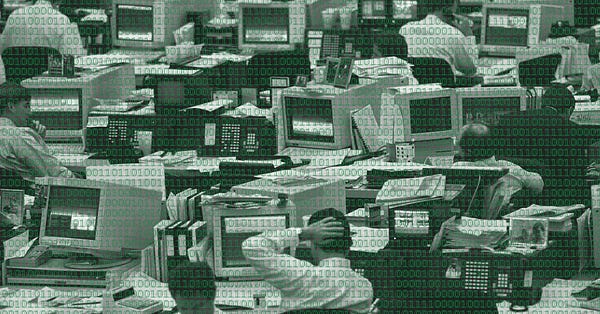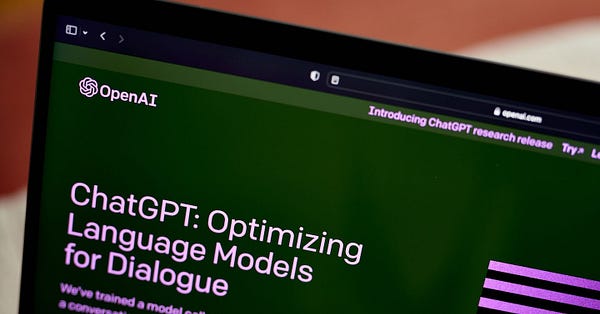If you have never heard of ChatGPT, that is all about to change. You are about to be inundated with stories about it because it’s potentially as revolutionary as the iPhone. You may think that’s hyperbole (and it may be— I mean, remember the Segway?) but the technology on display with ChatGPT has the potential to radically alter the world.
I mean, just look at these stories from the last week:
Stanford Students Admin to Using ChatGPT on Finals Exams. https://www.kron4.com/news/bay-area/stanford-students-admit-to-using-chatgpt-on-finals-poll-stanford-daily/
ChatGPT passes Wharton Business School Exam, Research Paper. https://thehill.com/policy/technology/3825754-chatgpt-passes-wharton-business-school-test-research-paper/
Gautam Adani, Asia’s Richest Man, is Addicted to ChatGPT https://www.cnn.com/2023/01/23/tech/gautam-adani-chatgpt-india-hnk-intl/index.html
ChatGPT has already passed the Torts and Evidence portions of the Multistate Bar Exam.
So what exactly IS ChatGPT and why is what is happening with it such a big deal? Let me explain.
Chatbots, AI and ChatGPT
A chatbot is a software application used to conduct an on-line chat conversation via text in lieu of providing direct contact with a live human agent. Designed to convincingly simulate the way a human would behave as a conversational partner, chatbot systems typically require continuous tuning and testing, and many in production remain unable to adequately converse.
Chatbots are used in dialog systems for various purposes including customer service, request routing, or information gathering. While some chatbot applications use extensive word-classification processes, natural-language processors, and sophisticated AI, others simply scan for general keywords and generate responses using common phrases obtained from an associated library or database.1
ChatGPT (Chat Generative Pre-trained Transformer) is a chatbot launched by OpenAI2 in November 2022 and is fine-tuned with both supervised and reinforcement learning techniques. That means 1) it learns from the information you provide it and 2) you can refine and make it better by reinforcing positive responses while noting which responses are not as good.
ChatGPT was launched as a prototype on November 30, 2022, and quickly garnered attention for its detailed responses and articulate answers across many domains of knowledge. 3 How good were the responses? It was able to pass the Wharton Business School Final Exam in a response made in one second. That level of articulation approaches the Holy Grail of Artifical Intelligence (passing the Turing Test4) and the speed with which completed an analytical problem and provided an accurate answer approaches the kind of computer intelligence we’ve only seen in movies like 2001 (HAL), Alien (Mother) and Iron Man (JARVIS).
Although the core function of a chatbot is to mimic a human conversationalist, ChatGPT is versatile. For example, it has the ability to write and debug computer programs; to compose music, teleplays, fairy tales, and student essays; to answer test questions (sometimes, depending on the test, at a level above the average human test-taker); to write poetry and song lyrics; to simulate an entire chat room; to play games like tic-tac-toe; and to simulate an ATM.5 It has the ability to create pieces in the style of a particular person; so if you asked it to make the Mona Lisa in the style of Picasso, it could render a cubist portrait in seconds.
What This Means
From an economic standpoint, this technology has the potential to be extremely de-stabilizing. It used to be just manual labor that was reduced by automation. Now, we are on the cusp of having a very large number of white collar jobs, usually seen as necessary due to the degree of analytical thinking and articulation involved, to be eliminated.
I’ll admit, my first thoughts about what jobs this would replace were customer service, government assistance and general assistance type jobs; however, the applications go way beyond that as Anne Lowrey notes for The Atlantic.


How good is it? She asked it to “Write a five-sentence paragraph in the style of The Atlantic about whether AI will begin to reduce employment for college-educated workers in the next five years.” ChatGPT’s response?
In the next five years, it is likely that AI will begin to reduce employment for college-educated workers. As the technology continues to advance, it will be able to perform tasks that were previously thought to require a high level of education and skill. This could lead to a displacement of workers in certain industries, as companies look to cut costs by automating processes. While it is difficult to predict the exact extent of this trend, it is clear that AI will have a significant impact on the job market for college-educated workers. It will be important for individuals to stay up to date on the latest developments in AI and to consider how their skills and expertise can be leveraged in a world where machines are increasingly able to perform many tasks.
I’d argue that’s a response BETTER than the typical article about ChatGPT. But Lowrey really gives the kicker:
“What happens when services like ChatGPT start putting copywriters, journalists, customer-service agents, paralegals, coders, and digital marketers out of a job? For years, tech thinkers have been warning that flexible, creative AI will be a threat to white-collar employment, as robots replace skilled office workers whose jobs were once considered immune to automation. In the most extreme iteration, analysts imagine AI altering the employment landscape permanently. One Oxford study estimates that 47 percent of U.S. jobs might be at risk.
No single technology in modern memory has caused mass job loss among highly educated workers. Will generative AI really be an exception? No one can answer this question, given how new the technology is and given how slowly employment can adjust in response to technological change. But AI really is different, technology experts told me—a range of tasks that up until now were impossible to automate are becoming automatable.”6
Which brings up the question— The middle class began to be hollowed out as manual labor tasks became automated and productivity rose. This began the intense focus and encouragement of higher education (student debt!) and a white collar workforce. What happens when white collar workers are then automated too, and the distance between the upper and lower classes, the haves and have-nots, become even wider and more hollowed out?
Revolution indeed.
PurpleAmerica’s Recommended Stories
I have to tell you, this Lowrey article in the Atlantic is very sobering. Definitely read it (click on the Twitter post earlier in the article).
But how else is it scary? Check these that Mashable was able to put together. In one instance, they asked it to fix the broken language in a scam phishing email, and not only did it do it, it began blackmailing the reader without being asked to!
For those of you who really want to throw the bums out of Congress, I give you…
Do we need legislators anymore?
PurpleAmerica’s Obscure Fact of the Day
The first time most people became aware that computers were getting to the point where they could compete with human knowledge was when IBM’s Deep Blue Computer took on World Chess Champion Gary Kasparov back in the 90s. In 1996, the computer became the first to beat the reigning world champ (but still lost the overall series) and in 1997 became the first to win a series under standard chess tournament rules.
Subsequent to that, IBM began looking for other ways to improve the technology and came up with the idea of having it compete on Jeopardy against human opponents. IN 2011, IBM’s “Watson” computer went against all time money leader Brad Rutter and the longest winning Jeopardy champion Ken Jennings in a multi-day contest.
PurpleAmerica Cultural Criticism Corner
What? Artificial Intelligence? Machines take over the world? Future Dystopias? I’m all in for it. Queue up the Films:
Outstanding Tweet
Or, maybe we still have a ways to go…


Parting Thoughts
Let me know what you think of the page. Please share and comment!
https://en.wikipedia.org/wiki/Chatbot
While largely a private company with Microsoft heavily invested in it, it’s valuation was at $29 billion soon after launching ChatGPT
https://en.wikipedia.org/wiki/ChatGPT
The “Turing Test” sometimes called “the Imitation Game,” is a test of a machine’s ability to emulate or exhibit behavior to the extent that it is otherwise indistinguishable from a human’s. As computers have become more complex and better programmed, their ability to mimic human abilities and responses could be said to have reached a point where they approach the Turing Test dynamic. However, in most cases, either by factual error grammatical mistakes or demonstrative issues, computers are usually still easily identifiable. As technology improves, its likely in the near future we may not be able to tell if we are talking with a computer or person, which is the goal of the Turing Test.
wikipedia/chatGPT
Lowrey, Anne, “How ChatGPT will Destabilize White Collar Work,” The Atlantic, January 20, 2023.








